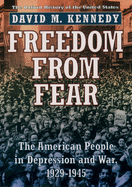"They say that most politicians are worthless, that it is demeaning to be classified with them, and disagreeable and dangerous to come into conflict with them, especially when they have stirred up the mob. Hence, they argue, it is no business for a wise man to take over the reins, since he cannot check the mad, uncontrollable rush of the crowd; nor does it befit a free man to struggle with corrupt and uncivilized opponents, lashed with foul abuse and submitting to outrages which would be intolerable to a person of good sense- as if good, brave, and high-minded men could have any stronger reason for entering politics than the determination not to give in to the wicked, and not to allow the state to be torn apart by such people in a situation where they themselves would be powerless to help even if they wished to do so."
Cicero published this not long before the fall of the Roman Republic. It is possible that because the public customarily gave such little respect to politicians, that men of good character did not become politicians. Of course, the opposite could be said, and it becomes a chicken or the egg question.
Cited- Cicero's Republic









